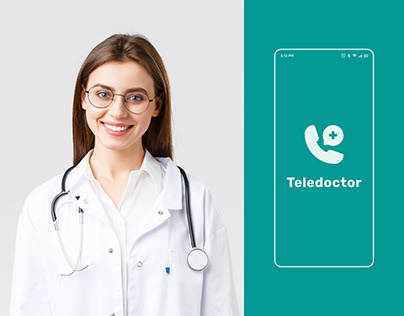Exploring the Advantages and Challenges of Teledoctors in Modern Healthcare
As the medical care landscape develops, teledoctors have actually emerged as an essential element in bridging gaps in medical access and performance. Exactly how can the health care industry balance these advantages with the integral obstacles?
Expanding Accessibility to Care
Telemedicine has become a pivotal technology in modern-day healthcare, substantially expanding accessibility to care for diverse populations. By leveraging electronic innovation, teledoctors have changed the typical health care delivery design, making it feasible for people in remote or underserved areas to obtain timely clinical examination. This evolution is specifically useful for people residing in country communities, where the shortage of health care facilities and experts frequently leads to delayed or poor treatment.
Teledoctors are important in bridging the gap produced by geographical obstacles. Through online consultations, clients can access a large range of healthcare solutions without the need for extensive traveling. This is especially advantageous for those with mobility issues or persistent conditions needing frequent medical attention. Moreover, telemedicine improves connection of treatment by allowing regular follow-ups and surveillance, therefore improving client outcomes.
The assimilation of teledoctors right into medical care systems additionally sustains the monitoring of public health situations by assisting in rapid reaction and triage. Throughout pandemics, as an example, digital consultations reduce the problem on physical health care centers, lessening direct exposure dangers for both patients and doctor. As telemedicine remains to evolve, it assures to reshape the landscape of medical care access, making it more effective and comprehensive.
Cost-Effectiveness of Teledoctors
The cost-effectiveness of teledoctors is a significant factor driving their extensive adoption in healthcare systems. By lowering the demand for physical facilities and in-person check outs, teledoctors use a more affordable alternative to typical medical care distribution. This model permits medical care suppliers to lower operational prices, such as those related to preserving physical workplaces and employing extensive on-site team. teledoctors. Consequently, these savings can be passed on to individuals in the form of minimized consultation fees, making healthcare extra accessible to a wider populace.
Furthermore, teledoctors promote a more effective use medical care resources by decreasing unneeded emergency situation room visits and hospital admissions. Individuals can access timely consultations for minor conditions or follow-up treatment, which helps to ease the burden on overstretched medical care centers. This performance not only causes set you back savings for doctor however likewise lowers the monetary strain on patients that could or else face expensive medical facility bills.
Moreover, teledoctors can aid in managing chronic conditions better by supplying constant monitoring and timely treatments. This aggressive strategy can stop problems, consequently reducing lasting treatment expenses. Generally, teledoctors present a feasible service to the escalating costs of health care, while maintaining top quality care distribution.
Enhancing Client Comfort
While cost-effectiveness plays an essential function in the rise of teledoctors, boosting person benefit stands as another engaging benefit of this health care version. With the combination of teledoctors, patients can bypass the typically taxing procedure of organizing and going to in-person consultations.
Moreover, teledoctors offer adaptable organizing, permitting clients to organize consultations at times that finest suit their professional and individual commitments. This adaptability is indispensable for individuals stabilizing demanding work schedules or family members obligations, my sources making certain that health care can be incorporated perfectly right into their lives. Additionally, the capability to access medical experts from the comfort of one's home can lead to boosted patient engagement and adherence to therapy plans, as the barriers to seeking care are minimized.
The ease offered by teledoctors not only enhances the client experience but likewise adds to an extra receptive and reliable health care delivery system, ultimately supporting better health end results.
Dealing With Personal Privacy Concerns
Amidst the growing fostering of teledoctors, personal privacy problems emerge as a substantial factor to consider. As health care increasingly counts on digital platforms, making certain the confidentiality of individual details comes to be critical. The digitization of medical documents and making use of telecommunication technologies demand robust safety and security procedures to protect delicate information from unapproved gain access to and violations.
Health care carriers must follow strict laws, such as the Medical Insurance Mobility and Liability Act (HIPAA) in the United States, which establishes nationwide standards for safeguarding clinical info. Conformity with such policies is crucial in preserving patient trust and guaranteeing their data is taken care of properly. Encryption of information, secure interaction networks, and regular audits are several of the procedures that can be applied to improve information defense.
In spite of these steps, obstacles linger. Cybersecurity risks are evolving, and health care click now organizations must continue to be cautious to brand-new vulnerabilities. In addition, informing both individuals and health care suppliers about best techniques in information personal privacy is necessary. This includes comprehending the limitations of digital interaction and the significance of protected login credentials. teledoctors.
As teledoctors become a lot more essential to health care delivery, addressing personal privacy problems is necessary to guarantee both the effectiveness and credibility of these services.

Navigating the Digital Divide
Bridging the electronic divide is a vital difficulty in the prevalent fostering of teledoctors. The benefits of teledoctors-- such as enhanced access and benefit-- remain unreachable for many individuals who could most benefit from them.
Initiatives to mitigate this divide demand a multi-faceted technique. Policymakers must prioritize infrastructure advancement to enhance net gain access to in underserved areas. Additionally, efforts to support modern technology for low-income homes can play a pivotal duty in making certain equitable access. Health care service providers and area organizations must team up to provide electronic proficiency programs, empowering patients to navigate telehealth systems with confidence. Moreover, developing straightforward user interfaces can further enhance availability for all demographics, especially the elderly.

Conclusion
The assimilation of teledoctors right into modern healthcare uses substantial benefits, consisting of raised access to care, cost-effectiveness, and boosted patient ease. However, difficulties such as personal privacy problems, the electronic divide, and cybersecurity risks need to be resolved to make the most of these advantages. By implementing robust information security steps, improving digital literacy, and making sure safe technological infrastructure, the possibility of teledoctors can be fully understood, advertising fair medical care delivery and changing the healthcare experience for all individuals.

Comments on “Leading Factors to Choose Teledoctors for Telemedicine Providers”